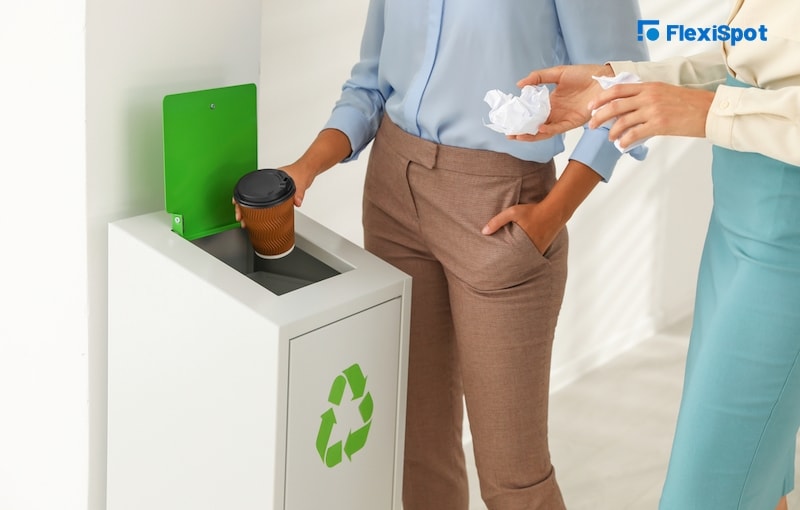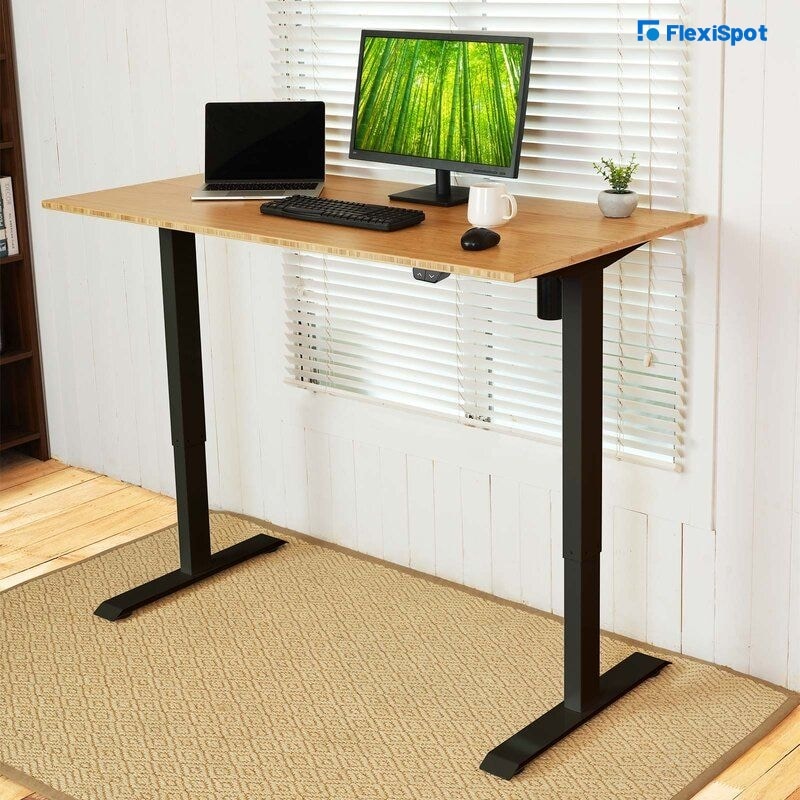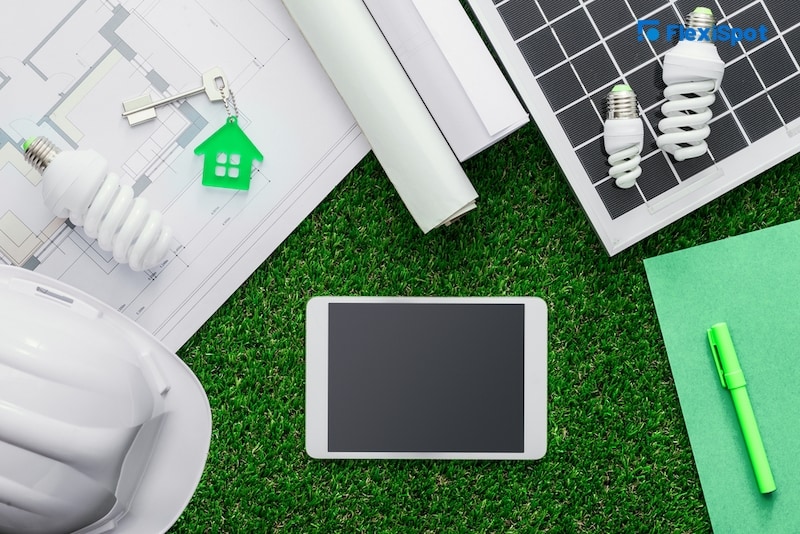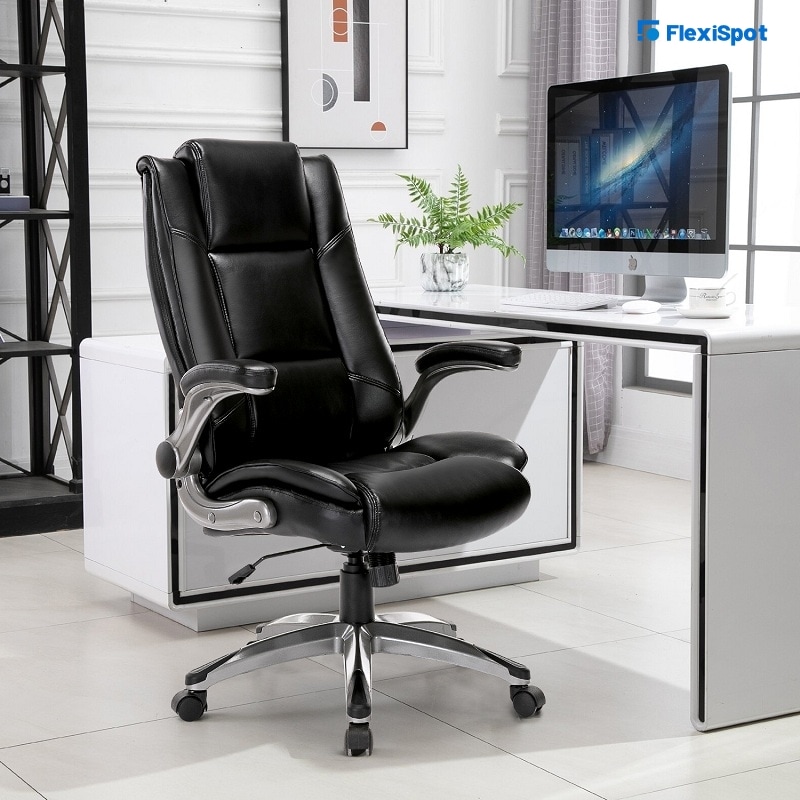In the last sustainability report by Commercial Cafe, it was highlighted that states in the US are decreasing their overall use of fossil fuels. 10% of the total electricity used in the country came from solar and wind. The drive to make the nation more sustainable and ecologically friendly was never stronger.
Apart from the environment, there are other advantages to making your office more environmentally friendly. When businesses make the conversion, they will witness an increase in consumers and clients. The public is aware of these issues; therefore, making an effort to be more environmentally friendly would help the workplace.
Wherever Possible, Recycle
Reduce, Reuse, and Recycle is an ancient concept that is particularly relevant now. Utilize recycling in the workplace to eliminate trash that might otherwise end up in landfills. While it is common to recycle metals, glass, cardboard, and paper, we often overlook other items that need to be properly recycled so that they don't add to the environment's overall degradation, such as:
Cartridges for ink and toner
Batteries
Discarded food (for composting)
If there are containers or recycling bins in conveniently accessible locations, recycling is simple. Recycling will become second nature for workers or colleagues if you make it simple.
Choose Sustainable Office Furniture
Whenever possible, it is best to avoid furniture made of unsustainable materials like plastics. These materials tend to be disposed of in landfills and oceans and take centuries to break down properly. Choosing bamboo office products like the Kana Bamboo Standing Desk are known for being sustainable products that don't harm the planet. At the end of its long life, you can
Bamboo is grown without harsh chemicals, protecting the soil, preventing soil degradation and erosion. Without the harsh pesticides, growing bamboo organically can help save our soils. Bamboo is also great for the air! Its trees take up 45% more carbon dioxide and release 35% more oxygen than the average tree. Plus, you don't need to uproot the entire tree for harvesting or replanting, so bamboo farms are healthier for the environment.
Plus, standing desks are great for your employees too. Studies have found that standing for even 66 minutes a day instead of sitting at work can help prevent cardiovascular diseases, cancer, diabetes, and obesity. It also helps improve mood and energy for the staff and increases collaborative efforts. All of this can help reduce sick leaves and increase productivity at your workplace.
E-Waste Should Be Recycled Properly
Even those who are used to recycling often miss e-waste. Electronic gadgets are not just harmful to the environment due to the use of plastics and similar materials in their construction. When electronics are disposed of, hazardous substances such as lead and mercury escape into the environment.
A short internet search can reveal your local electronics recycling facility. You can properly dispose of printers, old computers, phones, and other equipment there. You may even allow workers to drop e-waste for recycling alongside office equipment if you provide the facilities.
Change The Dress Code
Adapt the dress code and encourage the management to become more lenient with the dress code to stop wasting energy. Coming to work in a suit, a jacket, shirt, and tie amidst a heatwave isn't fun, and it's also not particularly sustainable or environmentally good since it almost always results in switching on the air conditioner. Adopt a weather-adapted clothing code if practicable, especially if there aren't any representation limits.
Create Green Contests Every Month
Monthly team competitions may be a fun way to combine competitiveness with staying green. You might, for example, challenge the workplace to spend a month without using any plastic dining utensils, then reward those who adhere to it with minor incentives like gift certificates or snacks.
Make Use of Renewable Energy Sources
Wind and solar power, for example, are much more viable than ever, with residential solar systems and massive wind farms among the alternatives. This changeover may be made by businesses of any size.
If the company is in a deregulated power state, shopping for an electricity provider and selecting a green power plan is a simple approach to make your workplace greener. Almost every electricity provider has green power plants that are powered by renewable energy such as wind and sunlight. These green energy plans are extremely reasonably priced when compared to regular coal or natural gas-powered electricity plans.
Remove All Paper from Your Life
The greenest approach to paper is none at all. Correction, updates, and revisions on printed documents account for 90% of all workplace waste in the United States, with the remaining 10% wasting space in storage areas. Whenever feasible, keep everything digital. It's as simple as storing digital data on mobile devices and computers rather than filing cabinets. Also, instead of printing off digital documents, get into the habit of studying them on-screen.
According to a 2014 analysis by PaperKarma and Catalog Spree, switching to digital would save 1.45 million metric tons of greenhouse gas emissions, or the equivalent of removing 280,000 automobiles off the street for a year.
Tips for Making Your Office Paperless
Have just one printer but don't keep papers loaded —people are less inclined to print if it is more difficult.
Encourage the use of mobile phones and other devices to access minutes and documents during meetings.
Request that other businesses, such as banks and investors, provide electronic statements and invoices instead of printed ones.
Ensure that all computers are equipped with the appropriate software for marking up and reviewing digital versions of papers.
Maintain a digital file system that is simple to use and navigate. The simpler it is to locate papers, the less likely individuals are to print them.
Make scanning as simple as possible. Some papers may need to be copied into a digital database if you wish to become paperless. Employees may be less inclined to stick to the paperless approach if scanning is cumbersome or tough.
Make Use of Natural Light
Using natural illumination instead of electric lights is one of the simplest methods to save electricity. Even in darker workspaces, with a little imagination, this can be done.
Use an open layout to enable light to flow freely.
Rather than drywall, use energy-efficient glass panels if you require walls.
To let more sunlight in, move bulky equipment or furniture away from windows.
Decorate with lighter colors to enable light to reflect off of them.
Incorporate mirrors into the décor to reflect light throughout the area.
You'll not only be reducing the business's carbon footprint, but you'll also be enhancing employee happiness and productivity. According to recent research, natural light with an outside view is the most desired feature in workspaces.
Bring Nature into Your Home
Introduce plants to your workplace to reduce the demand for air conditioning and filtration. Plants filter the air, absorbing formaldehyde, benzene, trichloroethylene, and carbon monoxide, creating fresh, pure oxygen.
NASA research found that plants can eliminate 87 percent of air contaminants in a workplace over the course of a 24-hour period.
Another advantage of having greenery at the workplace is that anxiety and illness are reduced in these environments. Increased productivity will improve the bottom line, and you won't have to worry as much about paid sick leaves if the staff work in a healthy environment.
Utilize Energy-Saving Appliances
Many computers now feature energy-efficient displays, and most appliances have an efficiency rating. Lights may also be configured to turn on when motion is detected. Many electrical devices include a "sleep-mode" feature that consumes less energy. To conserve as much energy as possible, be sure to check the choices on the appliances and equipment. You will be able to save money by switching to energy-efficient technology since you will not be using power when you do not need it. Switching to energy-efficient equipment can also help you get a higher green rating and lower your carbon impact.
If you aren't ready to upgrade to new appliances just yet, you may still save energy by simply turning off and disconnecting the equipment and appliance when the workday is over.
Implementing ways to make your office more environmentally friendly can positively impact the planet and your workplace. Most of these ways can also boost productivity at the workplace and create a sustainable reputation for your business, which customers are also attracted to.




